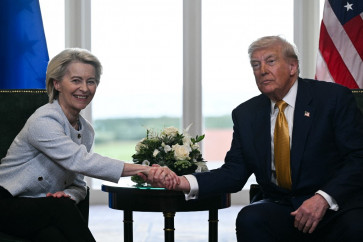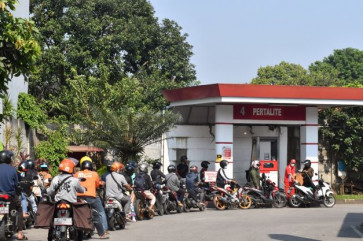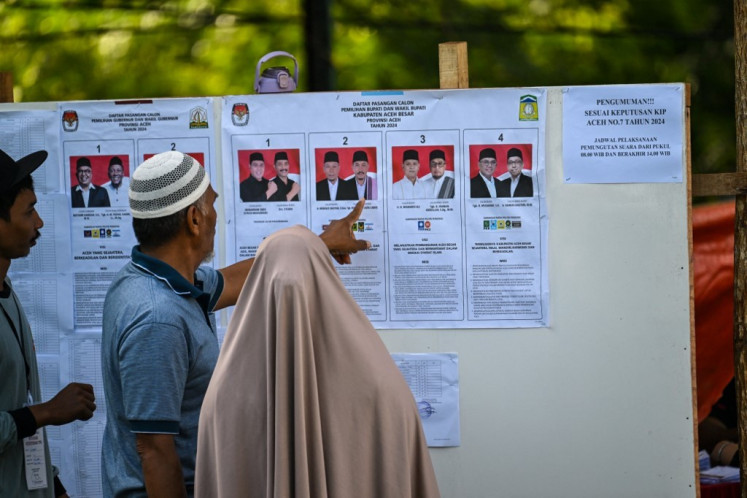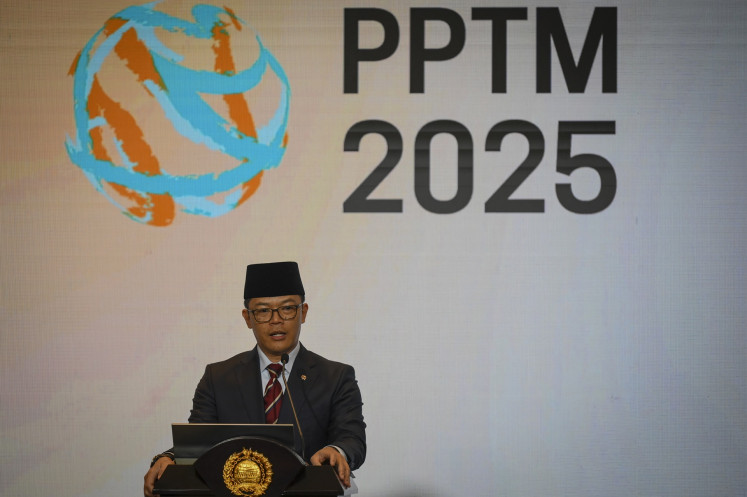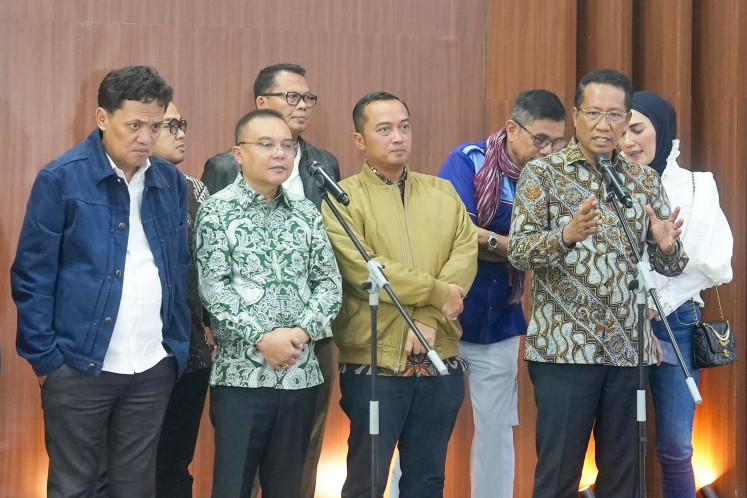Popular Reads
Top Results
Can't find what you're looking for?
View all search resultsPopular Reads
Top Results
Can't find what you're looking for?
View all search resultsRI can make bird flu seed vaccine: Unair
A team of scientists from Surabaya’s Airlangga University (Unair) say they can locally produce bird flu seed vaccine for humans for the first time
Change text size
Gift Premium Articles
to Anyone
A
team of scientists from Surabaya’s Airlangga University (Unair) say they can locally produce bird flu seed vaccine for humans for the first time.
Chairul Anwar, the chief of Unair’s Avian Influenza Research Center, told The Jakarta Post on Monday that the seed, which was officially given to the government on Sunday, would be produced by a local pharmaceutical company to meet domestic demand.
“In principle, our molecular biologists are now ready to face challenges from a virus pandemic and no longer have to depend on overseas institutions,” Chairul said.
In the event of an outbreak, Chairul said, Indonesia would be able to produce seed vaccine within a month.
The antivirus was made with reverse genetics technology derived by reconstructing a virus found in Indonesia, in line with a World Health Organization (WHO) recommendation, .
“The virus sample was then matched and a new model virus was made to imitate the body’s immune system after a few elements of [the virus’] ferocity were weakened,” Chairul said. The research project, added Chairul, which has been in progress for six months, started with the submission of a report on a prototype bird flu vaccine to the Vice President in 2009.
The government approved the project in October 2009, providing researchers with about Rp 2 billion (about US$235,000).
Indonesia has an ample supply tropical virus variants that have been sought by multinational pharmaceutical companies, Chairul said, adding that the WHO had previously asked Indonesia to send a virus sample to the pharmaceutical companies for commercial exploitation.
Based on research conducted by the Avian Influenza Research Center, more than 170 bird flu variants have been found in Indonesia, comprised of those that infected poultry, those that infected humans and those that infected both.
Coordinating People’s Welfare Minister Agung Laksono, also the chairman of the National Commission on Zoonosis Control, said the achievement meant that Indonesia was no longer dependent on overseas bird flu vaccine stocks.
“Besides its low cost, a domestic vaccine supply will also be secured. It will be helpful for the government’s program to control zoonosis,” Agung said.
The scientists would continue to research the development of vaccines for other viruses, such as HIV/AIDS, he said.
Chairul said many zoonosis diseases could no longer be treated with vaccines, such as the malaria virus, which was now resistant to quinine treatment due to environmental changes and massive vaccine use.
Unair, with its Animal Bio Safety Level-3 facility, is also establishing an agreement with the National Commission on Zoonosis Control to research disease transmission from animals to humans.
“The facility can also be used to prevent bioterrorism in addition to public health research because 70 percent of zoonosis disease seeds can be turned into the basic ingredients for bio-terrorism and agro-terrorism activities,” Chairul said.



